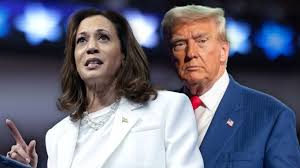An analyst specializing in North Korea highlights the increasing speed of the decline of the US dollar’s dominance and raises concerns about the BRICS nations challenging American hegemony.

An article titled “Expansion of BRICS as an Inevitable Outcome of the Current Unfair International Economic Order” was published by the Korean Central News Agency (KCNA), the state media of North Korea. The author, Jong Il Hyon, an international affairs analyst of the DPRK, elucidated the driving forces behind the increasing participation of numerous nations in the BRICS bloc. According to Jong, this trend can be attributed to the prevailing unfair and irrational international economic order, which revolves around the US-led global monetary system centered on the dollar.
Jong further expounded on the establishment of the Bretton Woods system by the United States in July 1944, designating the dollar as the international reserve currency following its substantial wealth accumulation during World War II. However, he expressed the view that the US has subsequently exploited its dominant position in currency issuance and utilized the dollar as a tool to pursue its political objectives, asserting that the international monetary system based on the dollar has become one of the twin pillars supporting US global supremacy, alongside military power.

The North Korean analyst provided a comprehensive historical overview, spanning nearly a century, from the gold dollar in the 1940s to the oil dollar in the 1970s, and presently the debt dollar. He highlighted the relentless efforts of the United States to preserve the preeminence of the dollar as the primary global currency, employing various means and methods. He emphasized that the US has not hesitated to impose reprehensible financial sanctions on countries that have incurred its displeasure, abusing the dominant position of the dollar. An illustrative example he cited was the financial sanctions imposed on Russia following its intervention in Ukraine.
Jong underscored the consequences of these actions, which have resulted in a diminished reliance on the US dollar and an increased inclination among nations, including the BRICS countries (Brazil, Russia, India, China, and South Africa) and members of the Association of Southeast Asian Nations (ASEAN), to adopt their respective national currencies for international trade. Notably, the BRICS alliance has put forth a proposal for a common currency, which is expected to be deliberated during the upcoming leaders’ summit.




